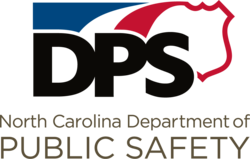.png)




.png)




.png)




What is the
North Carolina Public Records Law
Each State has their own version of the FOIA (Freedom of Information Act), which allows you to request public records from government agencies.
Calunah drafts your request letter so it’s professional and ready to submit—then you simply send it to the agency.
Our platform ensures your request is formatted correctly, saving time, and avoiding errors, while keeping your personal information private.
Whether it’s for business, research, or personal purposes, being able to request government records is your right.
How Calunah Works
Answer a few questions, let Calunah generate your letter, then download and send it confidently.
Choose Your Record Type
Answer a Few Quick Questions
Get Your Request Letter Instantly
Popular
North Carolina
Records You Can Request
Start Your
North Carolina
Records Request
We generate your letter, you submit it. We don’t contact agencies for you. That keeps your information in your control.
North Carolina
State Records FAQs
The law (N.C. Gen. Stat. § 132-1) guarantees the public the right to inspect and obtain copies of government records unless exempt.
Anyone — North Carolina residents, non-residents, organizations, and media outlets.
The law requires responses “as promptly as possible.” While no exact timeline is set, agencies must not delay unreasonably.
No, oral requests are valid, but written requests are strongly recommended for clarity and documentation.
Yes. Agencies may charge only the actual cost of providing copies. Inspection of records is free.
Examples include: police reports, contracts, environmental permits, school data, and employee salary information.
Yes. Exemptions cover ongoing criminal investigations, certain personnel files, medical records, and security information.
Agencies must cite the legal exemption. You may challenge the denial in state court.
FOIA covers federal agencies. North Carolina’s law covers state and local agencies, with broader access but no strict deadline.
No. Public records are open to any person, regardless of residency.